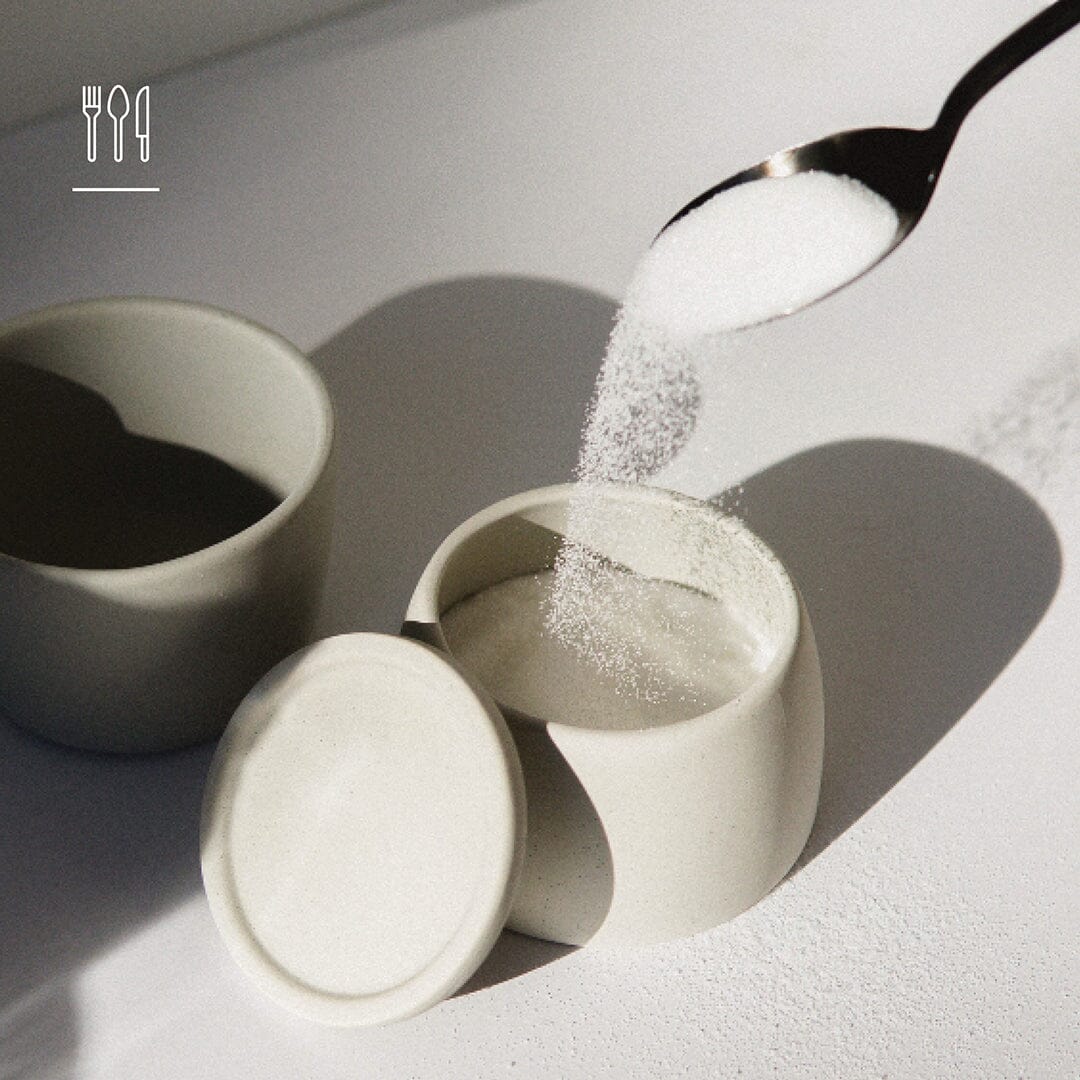Can you get too much of a good thing?
When looking for ways to improve health and age well, good nutrition is often one of the first areas that people look to address. For many, sugar is challenging to give up, even when we know that we are consuming too much.
Excess sugar consumption is associated with metabolic conditions such as obesity, insulin resistance and type 2 diabetes, cardiovascular disease and dental cavities. It causes oxidative stress and inflammation in the body, which can lead to the development of disease and aggravate existing health conditions.
Despite this, many of us reach to sugary treats when we are tired, emotional, premenstrual, or just because we like it. Biologically we are primed to reach for sweet foods for nourishment and energy. Sugar activates the opioid system, and a pleasure/reward neurotransmitter called dopamine. When dopamine is overstimulated this can ultimately lead to addictive behaviours such as cravings, binge eating and withdrawal symptoms.
So how do we break the cycle of excessive sugar consumption, and adopt healthier eating habits?
Tips to reduce sugar in your diet
-
Increase your intake of wholefoods – eating nutrient dense foods such as fruit, vegetables, nuts, legumes, wholegrains and protein contain the vitamins and minerals that our bodies need to function. Whole foods satiate hunger and reduce cravings.
-
Increase protein intake – protein makes you feel fuller for longer and so is a particularly important whole food to help beat those sugar cravings. If you are looking for a snack, how about a handful of nuts and seeds, a protein based yoghurt, tinned fish or some peanut butter on a wholegrain cracker.
-
Increase your intake of fibre - dietary fibre reduces the amount of sugar that is absorbed by the body. Soluble fibre is particularly good – for example, nuts, beans, oats and apples.
-
Be prepared – one of the keys to maintaining healthy dietary changes is being prepared.
-Plan meals and write a shopping list to reduce the temptation to impulse buy.
-Consider cooking in bulk once a week and freezing home made meals, ready for when you don’t have time to prepare something. Roast a batch of veggies that you can then add as a side or salad during the week.
-Make your own healthy snacks for the week.
-Stock up on naturally sweet alternatives. For example, liquorice tea and cinnamon spice.
-
Avoid hidden sugars – become more mindful when you buy premade or packaged foods. Often sugar is added to enhance flavour and you would be surprised how many savoury foods contain sugar.
-Read labels so that you can learn which foods may contain hidden sugars.
-Remember that fruit contains sugar too. So be mindful of how much fruit you are eating (it is easy to forget if you are adding it to smoothies or drinking fruit juice – so eating whole fruits can make it easier to track your consumption, not to mention the benefits of increasing your fibre intake).
-
Adopt healthy habits – reaching for a sweet treat can be habitual. Next time you go to the cupboard think about what you really need. What about calling a friend, going for a walk, reading a book, asking for a hug.
-
Add supportive minerals and herbs to your regime. For example, chromium, magnesium, fenugreek, berberine.
-
Get the help and support that you need:
-Do you have a friend or colleague who would also like to cut back on sugar? This can make the change more fun doing exercise together, exchanging healthy recipes or just having someone to call when you get that urge to grab a snack.
-It may be appropriate to seek professional advice, whether it be your health practitioner, a nutritionist, or a counsellor.
Suzy Walsh BBA (Hons)., BNat., mNMHNZ is a Registered Naturopath & Medical Herbalist


![Never Grow Old - Longevity Issue [Nutrition Business Journal]](http://scienceresearchwellness.com/cdn/shop/articles/NBJ_Post_-_LinkedIn.jpg?v=1692742979&width=1500)
![Circulatory system care "vital" [NZHERALD]](http://scienceresearchwellness.com/cdn/shop/articles/SRW_-_News_Clip_-_Post_-_Cir1_-_D1_dfadc7dc-c57a-4f80-82bd-4fdb5ba5f0cd.jpg?v=1692742734&width=1500)
